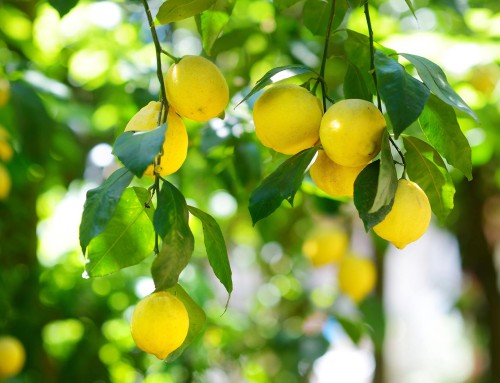In Ayurveda the heart is seen as more than just a blood circulation pump. Emotions and feelings, such as love, joy and sorrow, are centered in our heart. Consciousness and life itself flows through our heart.
What is breaking our hearts
We can suffer from a broken heart when we go though a relationship breakdown. In a more physical sense, our heart can be ‘broken’ when we suffer from a heart attack.
Our Western lifestyle seems to culture heart problems and promote stress. Often we don’t take time to prepare ourselves good quality food. We don’t get enough rest and we don’t do enough exercise. The resulting physical and psychological pressures impinge directly our hearts.
Heart attack recipe
Our modern diet is often loaded with sugar, chemical sweeteners, unhealthy fats, and over-refined simple carbs. Much of the food we eat is highly processed, and loaded with pesticides and flavour-enhancers, such as monosodium glutamate (msg).
Mix together unnatural, over-processed food, with high levels of stress, lack of exercise, suppressed and unexpressed emotions, and inadequate rest and you get the perfect recipe for heart problems.
In recent decades great progress has been made with stents and coronary artery grafts to treat diseased blocked blodd vessels. We have become experts at dealing with such symptoms but are not so good at removing the original cause of the problem. As a result, the incidence of heart failure increases year upon year and heart disease remains a major health problem.
Ayurveda and the heart
The ancient tradition of Ayurveda has many insights that can help us both prevent and heal heart problems.
Ayurveda sees consciousness as the elements that underlies all of life. What makes us human is our consciousness – our capacity to be and to know all that life is. It is our deepest faculty and sits beyond and underlies our most sublime thought and finest feeling. Ayurveda holds that consciousness flows into our physical structure through the heart and animates our nervous system and all our bodily tissues. In a very real sense, life flows through our heart.
Meditation for a better heart
Transcendental Meditation (TM) helps you transcend the thinking process and access the deepest, most silent level of consciousness. It is therefore not suprising that this technique has been found to have profound benefits on heart health.
The American Heart Association has issued a scientific statement on their website recommending the use of TM to reduce blood pressure. In one study they found that, “the primary end point (composite of all-cause mortality, myocardial infarctions, or stroke) was significantly reduced by 48% in the TM group”.
Back in 1987, Dr Orme-Johnson studying 600,000 members of an insurance company. He found that the 2,000 members, who practiced TM, had an 87.3% lower rate of hospital admissions for heart disorders, compared with the other members.
Read Transcendence – Healing & Transformation through TM and Transcendental Meditation by Robert Roth.
Nourishing our emotions
Ayurveda places great emphasis on the quality of our relationships. Our intereactions with others, particularly with those we care for, has a huge impact, both positively and negatively, on our heart health. When we feel emotionally upset stresses hormones, such as adrenaline, spew into our bloodstream and this can damage the delicate fibers of our heart.
According to Ayurveda, a holistic approach to heart health requires that you nourish your emotional heart as well as your physical heart. After all, the heart is not just a pump – it’s the fountainhead of all our emotions, whether it’s joy and exhilaration, or sadness and frustration.
Maharishi Ayurveda herbal supplements Peace of Mind and Blissful Joy are designed to nourish both the mind and the emotions.
Vata, Pitta and Kapha and the heart:
Ayurveda describes the heart’s function in terms of Vata, Pitta and Kapha Doshas – the moving, transforming and stucturing elements of our physiology. Each Dosha has five Subdoshas associated with them and each Subdosha has a different responsibility within the framework of its major Dosha.
In the workings of the heart, the following Subdoshas play an important role:
- A Subdosha of Vata, called Prana Vata, is located in the heart, upper chest, and head and regulates the beating of the heart, as well as the movement of breath, absorption and use of oxygen, and nerve impulses.
- Another Subdosha of Vata, called Vyana Vata, governs the beating of the heart and the circulation of blood throughout the body.
- A Subdosha of Pitta, called Sadhaka Pitta, governs the emotions and their effect on heart functioning.
- A Subdosha of Kapha, called Avalambaka Kapha, gives structure and stability and strength to the heart.
According to Maharishi Ayurveda, stress aggravates two vital Subdoshas. Prana Vata is aggravated by mental overload, Sadhaka Pitta by emotional trauma. Ayurveda has a lot of good advice on how to pacify aggravated Dosha imbalances.
Pacifying Prana Vata:
- Favour Vata-balancing foods, such as sweet, sour, and salty tastes and foods that have unctuous and warm qualities
- Favour warm milk and other light dairy products
- Get plenty of rest
- Avoid or reduce stimulants, such as caffeine and alcohol
- Performing a full-body warm oil self-massage (Abhyanga) every day
- Practice Transcendental Meditation.
Pacifying Vyana Vata:
- Eat more unctuous, freshly cooked, warm foods, and avoid cold foods and drinks. Also avoid leftover, packaged, canned, frozen, processed or fast foods.
- Eat in a settled, quiet atmosphere and focus on your food when you eat.
- Go to bed before 10:00pm, and manage your mental workload.
- Do mild exercise every day, such as taking a walk or stretching exercises like yoga.
Pacifying Sadhaka Pitta
- Avoid emotional confrontations.
- Create a home environment that is pleasing and restful to the senses.
- Limit watching TV at night, especially any violent movies or shows.
- Go to bed before 10:00pm, when the Pitta time of night starts.
- Eat more sweet, bitter and astringent foods, such as a cooked sweet, juicy pears for breakfast.
- Avoid delaying or skipping meals, and drink plenty of pure water throughout the day.
Next heart article: Increase Ojas to promote heart health






